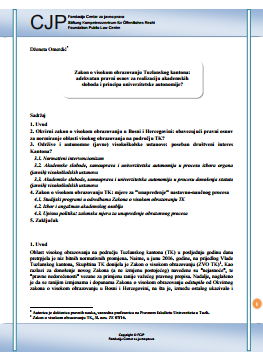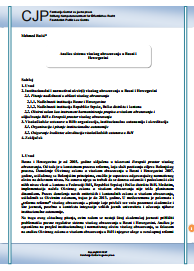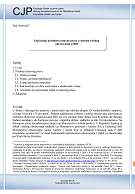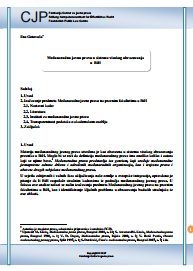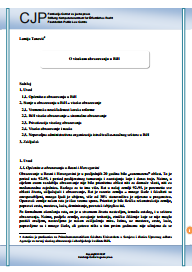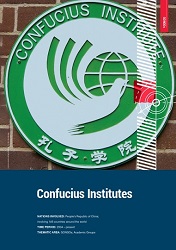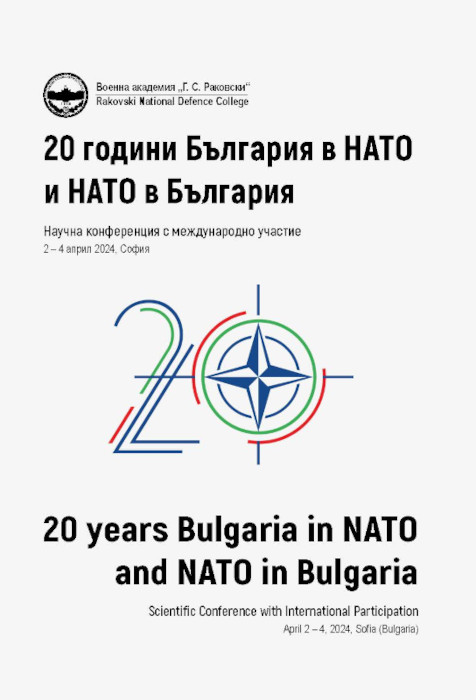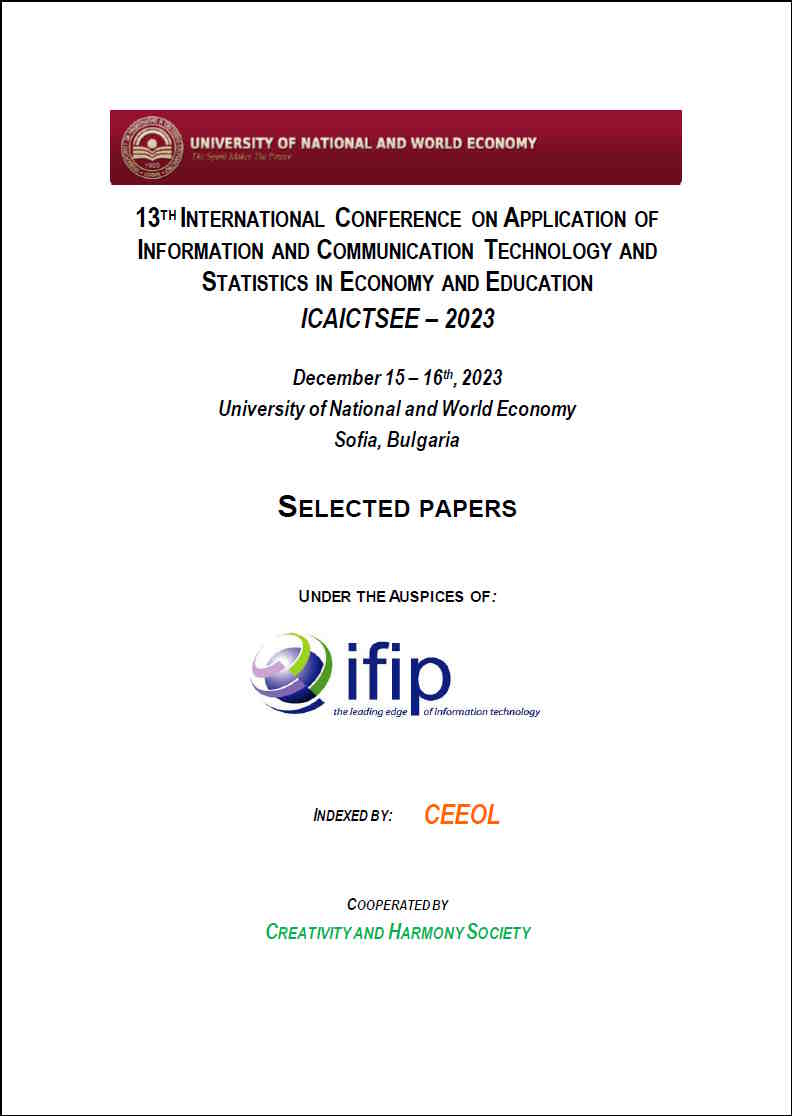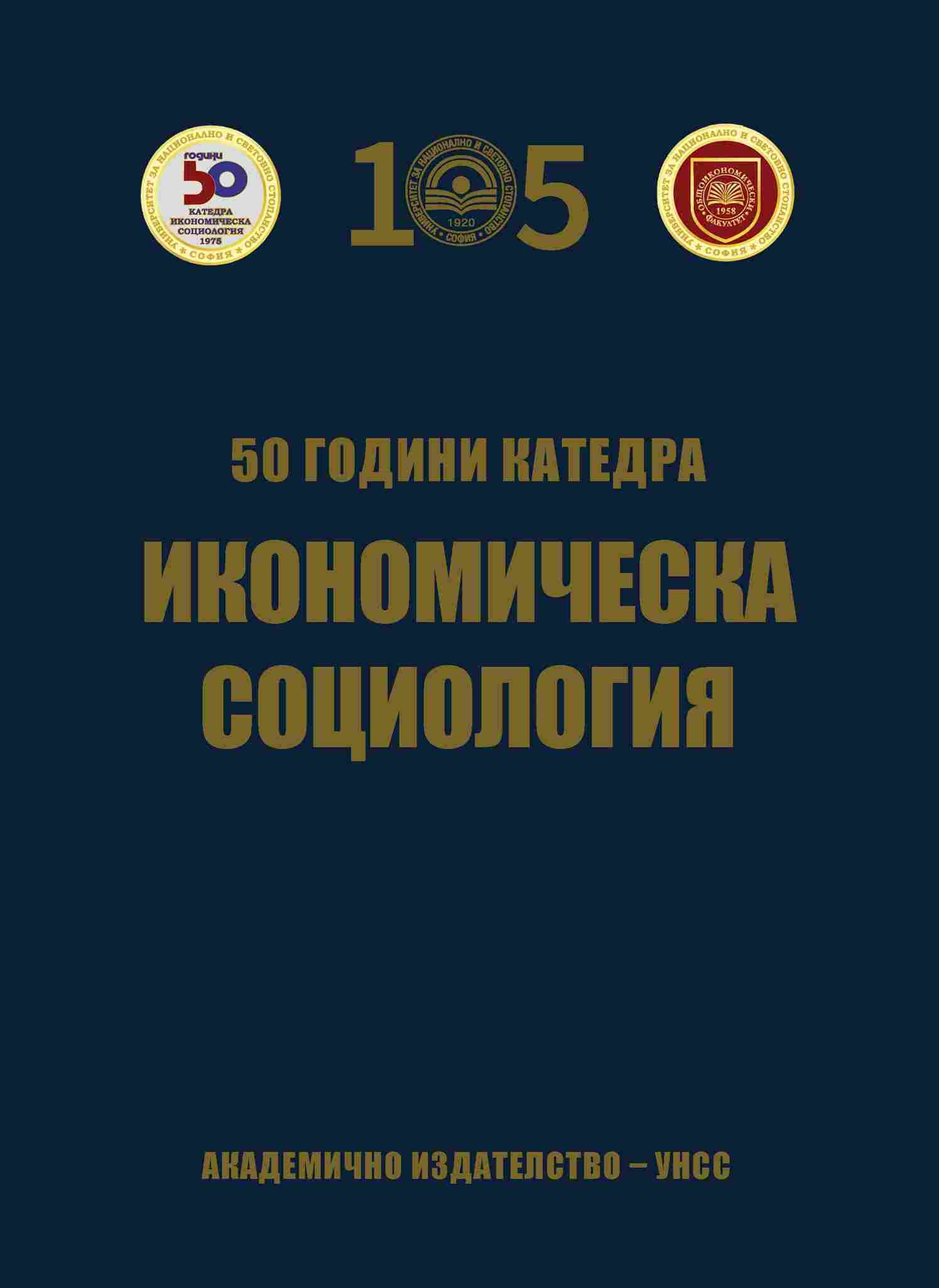Author(s): Ena Gotovuša / Language(s): Bosnian
Bosna i Hercegovina je suočena sa problemom deficitarnosti nastavnog kadra za oblast međunarodnog javnog prava. Postojeći kadrovi nisu okupljeni u „think tank“ koji bi trebao da se bavi intenzivnim naučnim i istraživačkim radom, kako bi se rješavali nagomilani problemi, prvenstveno reforme koje su postavljene kao uslov za priključenju EU. Angažovanje profesora iz susjednih država ne doprinosi razvoju međunarodnog javnog prava u BiH, jer ne može se očekivati da će u uslovima globalne konkurencije između država za ekonomsku i političku moć, zastupati interese BiH na najbolji mogući način. Uz to angažman istog osoblja na više mjesta unaprijed osujećuje raznolikost perspektiva, metodskog pristupa i obradu specifičnih nacionalnih aspekata u međunarondopravnom kontekstu. Ukoliko je riječ o samo trinaest odgovornih nastavnika, od čega znatan broj iz susjedne države, koji su paralelno angažovani na najmanje dvije visokoškolske ustanove, pri tom u pravilu na oba ciklusa studija, a nerijetko i na srodnim predmetima, nameće se pitanje, da li studenti mogu dobiti kvalitetno obrazovanje u skladu sa bolonjskim principima. Čini se da su profesori, za razliku od studenata, shvatili, apsolvirali i primijenili princip mobilnosti. Cijenu ovakve mobilnosti plaćaju studenti. Naravno, sve uveliko zavisi od uprava visokoškolskih ustanova, nastavno-naučnih vijeća i senata koji dopuštaju angažovanje spoljnih saradnika. Umjesno bi bilo očekivati da univerzitetske ustanove same produciraju kvalitetan kadar koji bi mogao zadovoljiti minimalne bolonjske principe. Uočljivo je, kako u BiH, tako i u susjednim državama, porast trend stručnjaka za više različitih oblasti. Profiliranje eksperata za uže naučne oblasti nije u trendu, pa stoga nije čudna pojava da nastavnici predaju i po nekoliko predmeta iz različitih naučnih oblasti. Naročito zabrinjava činjenica da postojeći nastavni kadar, iako okićen akademskim zvanjima redovnih i vanrednih profesora, nije produktivan kada je u pitanju publiciranje vlastitih udžbenika za predmet Međunarodno javno pravo. Tako studenti pravnih fakulteta u BiH mogu se služiti samo jednim udžbenikom domaćeg autora29. Stoga ne čudi činjenica da su udžbenici autora iz susjednih država obavezna literatura za spremanje ovog ispita na skoro svim pravnim fakultetima u BiH. Imajući u vidu način na koji je uređena oblast visokog obrazovanja u BiH, podijeljene nadležnosti i rastući trend da svaki malo veći grad ima barem jedan vlastiti univerzitet, u okviru kojeg se obavezno otvara i pravni fakultet, ne može se govoriti o kvalitetnom pravničkom obrazovanju. Dodatni problem visokog obrazovanja, koji se direktno reflektira i na način izučavanja predmeta Međunarodnog javnog prava, jeste netransparentnost podataka o nastavnom kadru i silabusu predmeta s obzirom da je većina službenih web stranice pravnih fakulteta neažurirana ili pak uopšte ne nudi pomenute informacije. Hiperprodukcija mladih pravnika sasvim je logična kada se uzme broj pravnih fakulteta – njih ukupno 18, koji djeluju na području BiH. No, glavnom problemu, kvalitetu stečenog obrazovanja novih generacija ne posvećuje se nikakva pažnja, što i ne čudi, jer isto tako u BiH niko ne vrši evaluaciju nastavnog kadra. Stoga ne iznenađuje slučaj da u radnom odnosu i zvanju redovnog profesora bude osoba koja je falsifikovala više diploma. Rješenje problema bi bilo davanje širih ovlasti državnoj Agenciji za razvoj visokog obrazovanja i osiguranja kvalitete BiH čije bi preporuke bile obavezujuće i ne bi ovisile o konačnom sudu nadležnih entitetskih/kantonalnih ministarstava obrazovanja. S tim u vezi bilo bi svrsishodno da se uspostavi državna prosvjetna inspekcija za visoko obrazovanje koja bi se bavila pitanjima opterećenosti profesora nastavnim fondom, objavljenim publikacijama, poštivanjem Zakona o visokom obrazovanju, naročito odredaba o izboru nastavnika u viša akademska zvanja. No, što zbog političke situacije, što zbog činjenice da je visoko obrazovanje postalo veoma unosan biznis, ova očekivanja nisu realna.
More...
